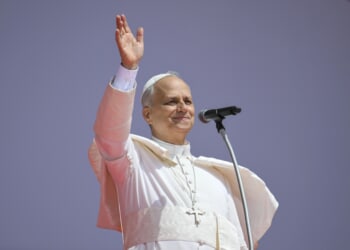People who cover politics for a living have a tendency to get a bit Moneyball about reshuffles. Who’s in, who’s out, what difference is this appointment or that going to make, who likes or dislikes who, etc. In a sense, that’s the job, no less than for sports reporters covering the end of the ‘transfer window’, whatever that is. The minutiae of politics provide material for those of us who need to write about it several times a week.
But in such circumstances it can be difficult to step back and admit that whatever seismic events are unfolding in tomorrow’s chip wrappings don’t, in the great scheme of things, matter very much.
Most of the individual moves in a ministerial reshuffle, for example, are more or less irrelevant, and the more so the more a government has conducted. Barring a few truly exceptional individuals, the critical ingredient needed for someone to make a real impact on a government brief is time, and by the time reshuffles are occurring biennially hardly anyone is getting it.
Advisorial reshuffles are even more inside-baseball. But they can tell us more about the state of a government, because they are much purer expressions of executive will than those of ministers, which are heavily influenced by, if not more-or-less conducted by, the whips’ office. So, what to make of Sir Keir Starmer’s latest reset?
Frankly, it probably doesn’t matter very much. The process has been somewhat illuminating, not least the Prime Minister’s decision to include officials in his circle of consultees when drawing it up. But that doesn’t tell us anything we didn’t already know; his government is perhaps the closest this country has got to direct rule by the Civil Service.
Perhaps the new director of communications will help. But whilst it is obviously better to have good comms than not, no communication specialist can help you unless you have something to communicate, and it is precisely that which Starmer has been lacking. Consider this, from Patrick Maguire’s write-up in this morning’s Times:
“James Lyons, out as director of strategic communications after 11 months, had not intended to stay for the long haul. But some cabinet ministers and special advisers were alienated by his forthright style and all too often it is Nigel Farage, not the government grid, that has dictated the terms of conversation in Westminster, to say nothing of the country.”
Is that Lyons’ fault? One cannot blame riflemen to whom one has not issued adequate ammunition if they fail to take or hold a position. If Farage has been making the running in recent months, that’s because he’s very happy talking about immigration and the Government has not been. Yvette Cooper is starting to put in some solid New Labour work on the subject (such as actually changing the rules), but Starmer seems to have hoped that “smashing the gangs” was an alternative to an asylum policy, and it isn’t.
The danger of having a very strong-willed communications operation, in the absence of anything else, is that it ends up inverting the proper relationship between itself and government and letting the need to populate the grid start setting the overall policy agenda. This is not a recipe for good long-term government – although, in these particular circumstances, it would at least involve someone setting an overall policy agenda.
All of this will perhaps provide some interesting micro-spectacle for politics fans over the next few months and years. None of it, however, changes the fundamentals of the Government’s decaying position. These are a) that multiple decades of stagnant growth have left the British state cannibalising itself to maintain revenue spending levels and b) Labour MPs were not elected on a manifesto involving very hard spending decisions and have no intention of making them.
One of the jaws of this vice is not Starmer’s doing, the other is. But it is already closed very tight, and will only tighten. If anything, Starmer’s drafting in more advisors from the Treasury – including Darren Jones, who left ministers bruised during the battles over the spending review – is only going to accentuate the strategic contradiction at the heart of his government. These people might give him sensible advice, but what use is it if it points to battles which, judging on past performance, he has not the stomach to fight?






![Gavin Newsom Threatens to 'Punch These Sons of B*thces in the Mouth' [WATCH]](https://www.right2024.com/wp-content/uploads/2025/08/Gavin-Newsom-Threatens-to-Punch-These-Sons-of-Bthces-in-350x250.jpg)
![ICE Arrests Illegal Alien Influencer During Her Livestream in Los Angeles: ‘You Bet We Did’ [WATCH]](https://www.right2024.com/wp-content/uploads/2025/08/ICE-Arrests-Illegal-Alien-Influencer-During-Her-Livestream-in-Los-350x250.jpg)







